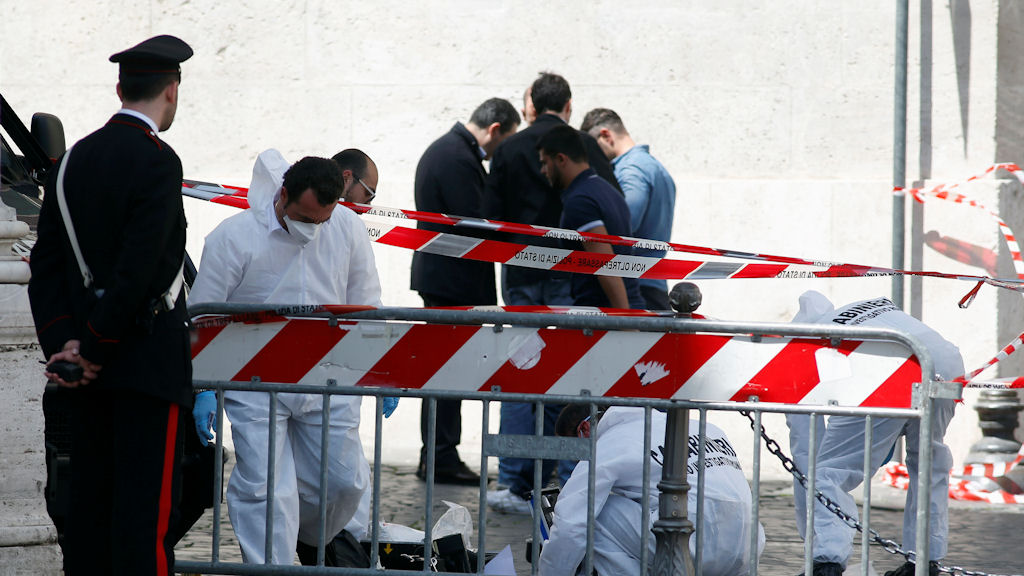Italy gunman motivated by ‘anger’ with politicians
A gunman who shot and wounded two police officers and a passerby outside the Italian prime minister’s office in Rome earlier tells investigators he acted out of anger with politicians.

The gunman, identified by police as 49-year-old Luigi Preiti, was arrested immediately after the shooting in Italy, which took place as the new government of Prime Minister Enrico Letta was being sworn in at the nearby presidential palace.
Prosecutors said Mr Preiti, an unemployed man from the southern region of Calabria, acted out of anger with politicians.
“His intention was to strike politicians,” deputy Rome prosecutor Pierfilippo Laviani told reporters after the incident, which left two police officers and a passerby injured. One of the police officers is in a serious, but not life-threatening, condition after he was shot in the neck outside Palazzo Chigi, the prime minister’s official residence.
Mr Laviani said Preiti had “confessed everything” and didn’t appear mentally unbalanced.
The tragic gesture of a 49-year-old unemployed man. Interior Minister Angelino Alfano
“He is a man full of problems, who lost his job, who lost everything,” the prosecutor said. “He was desperate. In general, he wanted to shoot at politicians, but given that he couldn’t reach any, he shot at the Carabinieri [police].”
The shooting “was the tragic gesture of a 49-year-old unemployed man”, Interior Minister Angelino Alfano added.#
Volatile mood
The public mood in Italy is volatile as a long economic slump and the eurozone crisis have exacerbated social divisions and deep political tensions.
Parliamentarian Emanuele Fiano said: “All political forces have to work together to lower the level of tension that the economic, social and institutional climate has already created.”
That’s exactly the task which lies ahead of the newly formed government, finalised on Saturday when the head of the Democratic Party Enrico Letta ended two months of political stalemate after February’s inconclusive election by inviting former political rivals to form a broad coalition.
Former leader Silvio Berlusconi is a key stakeholder in the government, which has been broadly welcomed by Italy’s mainstream press for its mix of centre-right and centre-left politicians and unaffiliated technocrats. The team is relatively young and includes a record seven female ministers.
-
Latest news
-
FactCheck: three promises Rishi Sunak has broken

-
FactCheck: three promises Keir Starmer has broken

-
How Sudan’s Frankenstein’s monster led to war that threatens to destroy country

-
‘Rishi Sunak has learned nothing from Liz Truss’, says Rachel Reeves1m

-
‘Reform UK will become the voice of opposition’: Nigel Farage2m

-




